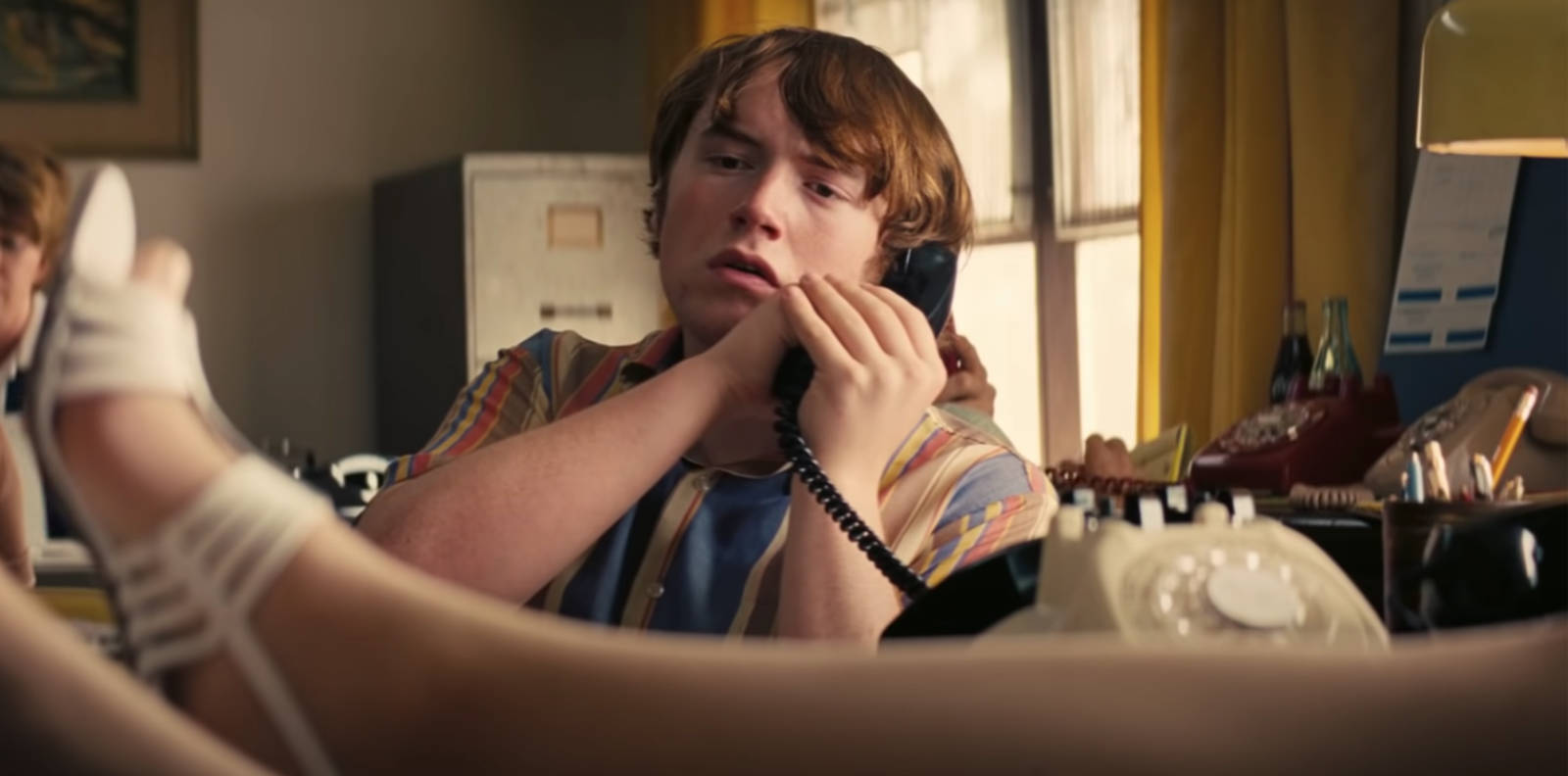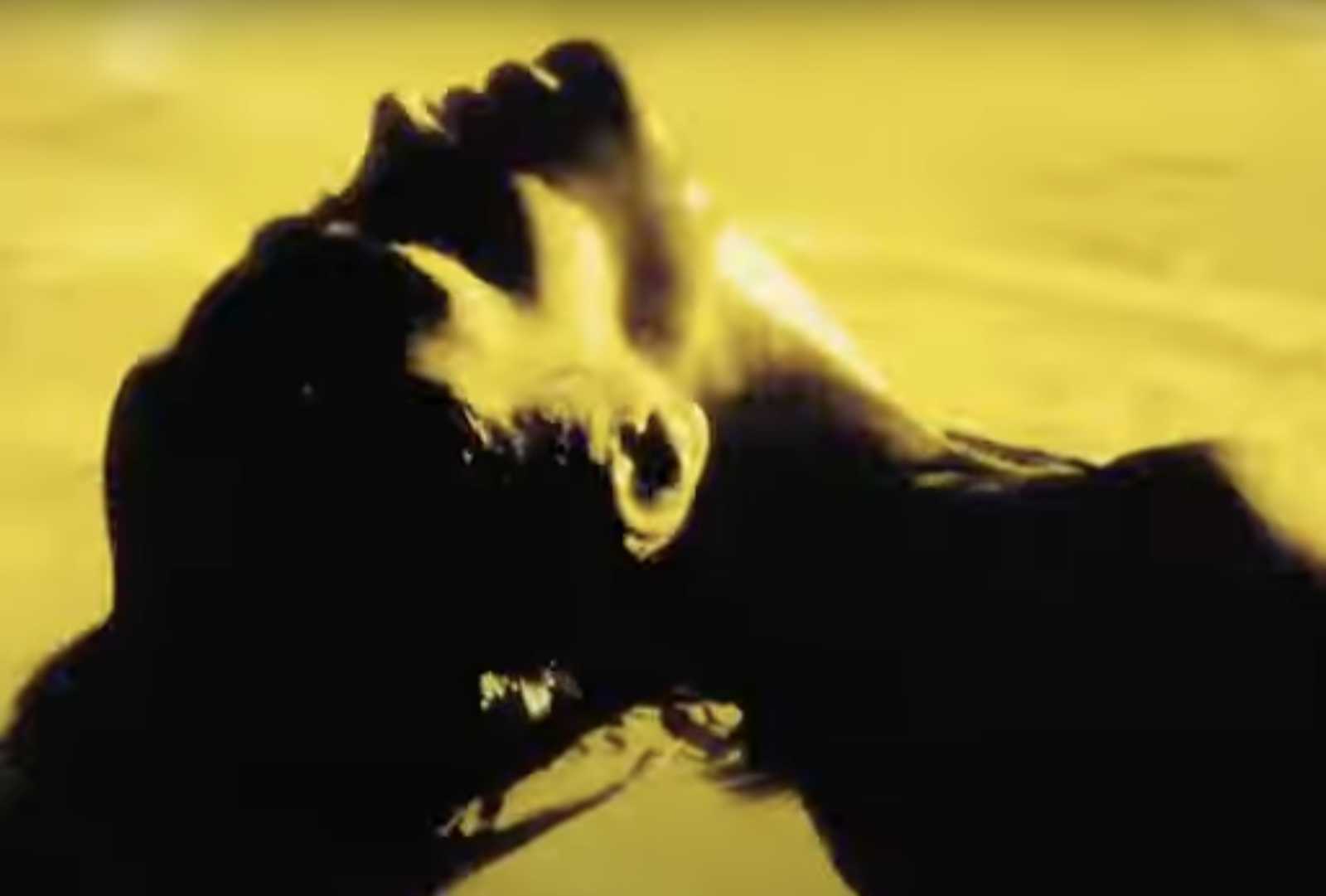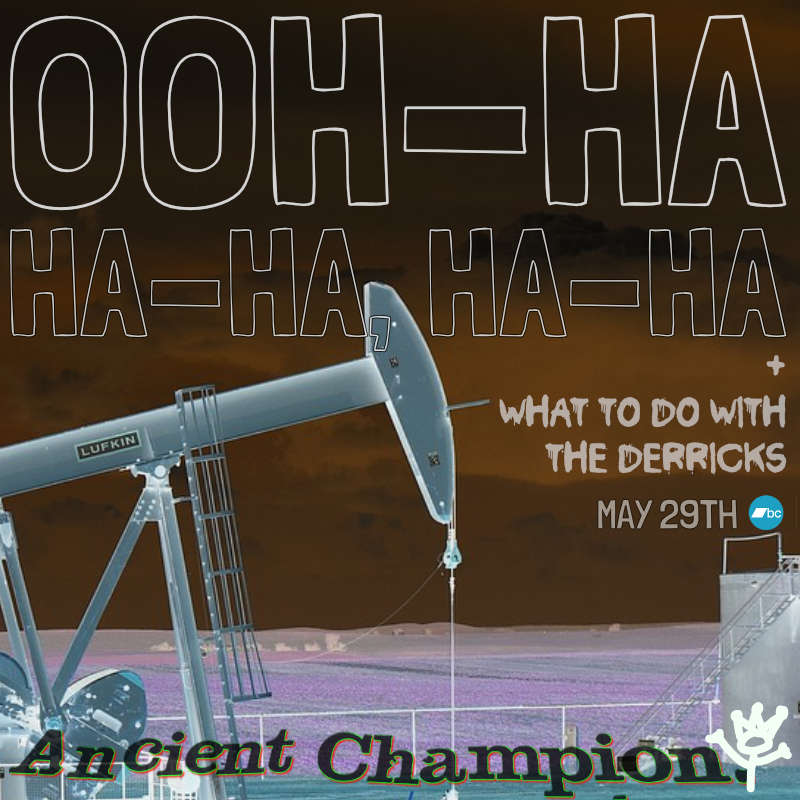It's always great to meet a person who really loves film, and views it not in purely commercial terms but as an enduring, accessible, significant and spectacular artform. Carl Sweeney is steeped in the history of cinema, is an avowed fan of the musical and is as comfortable at the mulitplex as he is at the Electric Screen. Carl leads the Talking Film group at the Mac (Birmingham's Midlands Arts Center). His classes are in-demand and he enjoys them as much as his passionate group of attendees. On the eve of the Academy Awards, who better than Carl to talk us through an A to Z of all things filmwise, from cheated gangster movies, thru' new wave innovators, and why musicals work... And saving the Electric Screen from becoming a slope-floored warehouse. Can't remember who said that first...
OUTSIDELEFT: Do you find there's a good appreciation for film in Birmingham, your classes are popular...
Carl Sweeney: I think there are lots of knowledgeable cinephiles in Birmingham. With the Talking Film classes at the MAC, everyone who attends is passionate about cinema, which makes it a pleasure to teach. The basic idea with this course is that we follow a particular theme each term relating to film history. For example, we looked at the development of the gangster film last term, starting in the silent era and ending up much closer to the present day. Focusing on a specific topic in this way lets us really do a deep dive into things like genre conventions and the evolution of cinematic style.
OL: When does your next class begin and how can people join?
CS: Our summer term starts at the end of April and people can find more information at the following link: https://macbirmingham.co.uk/event/talking-film-dm11-summer-1. We only have a limited number of spaces on the course, so if anyone reading this does want to join up, you might need to act quickly!
OL: The MAC is one of Birmingham's vibrant jewels, I love that building...
CS: I agree, it’s a very nice building and it’s in a wonderful location at Cannon Hill Park. And in addition to the classes and film screenings, there are always lots of other interesting things going on, including plays, live music and exhibitions. As a parent, I can also attest to the fact that it’s a good place to take children to.
OL: You must be thrilled about the Reprieve for the Electric Screen...
CS: Yes, I was delighted when I heard that the Electric Cinema was reopening. It’s another great venue and an invaluable part of Birmingham’s cultural heritage. Whenever I go there, I can’t help but think about all the societal and technological changes that have taken place since they started showing films over a hundred years ago.
I went to see Nightmare Alley there on the weekend they reopened, and I was pleased to find that the Electric remains a charming place to see a film. It was also nice to see plenty of other people at the cinema that weekend, which hopefully means that it has a great future as well as a distinguished past.
OL: Is there much actual film production in the city that you are aware of?
CS: From what I understand, a substantial amount of filming does take place in Birmingham, including for some very big productions. For example, I know that much of Steven Spielberg’s blockbuster Ready Player One was made here. I also think some big action scenes for Kingsman: The Golden Circle were shot in Birmingham’s financial district. This is in addition to all sorts of other projects that have utilised locations in the city, so I imagine that film and television production must bring a significant amount of money to Birmingham’s economy.
OL: Screenwise has the town ever surpassed Crossroads?
CS: Believe it or not, I’ve never seen an episode of Crossroads, probably because I’m a bit too young to have seen it when it originally aired. I only know it as a bit of a cultural punching-bag (all the jokes about wobbly sets, etc.).
On a serious note, I will say that my favourite onscreen depiction of Birmingham is in the 1999 film Felicia’s Journey. It’s an intriguing thriller featuring a memorable performance by Bob Hoskins. It’s a film with a fairly twisty plot, so I won’t say more, but it’s worth a look…
OL: Let's talk about film specifically... I know you have an interest in musicals, because? Whenever I see them, LA La Land West Side Story... They're enthralling.
CS: I can trace my interest in musicals back to seeing Singin’ in the Rain as a teenager. The film made a big impression on me and has been one of my favourites ever since. I think it’s a wonderful tonic - perfect viewing for those times when you need something to cheer you up.
In general, I find musicals fascinating because the genre has been written off several times over the years but it always finds a way to survive. I think there’s often an interesting paradox with newer musicals whereby they may be very nostalgic on the surface, at the same time as they’re finding ways to adapt to the contemporary context (La La Land is a good example of this, in my opinion).
OL: Oscars. It's aroundabout now. How do you feel about the Oscars, the awards ceremonies in general. I always maintain that, will say like the Brits, there are 50,000 songs written and uploaded each week, that consensus, that they are the best films or songs... Aren't they just the best we get to hear about. The industry friends everything else out. I'm excited by the Oscars though. The glamour.
CS: I agree with you, I don’t think the Oscars can be seen as a definitive guide to the best films made every year. Ultimately, it’s all subjective, I suppose, but in my view one of the best films from the last year was Céline Sciamma’s Petite Maman, and that hasn’t been nominated for anything by the Academy. In general, I think they tend to favour certain kinds of film that reflect the interests of their pool of voters. Having said that, I think they have made moves to make their organisation more inclusive, which I think is overdue. And I think one of the effects of that is that the nominees from the last few years have been a bit more cosmopolitan than before. I’m thinking of the fact that the South Korean film Parasite won Best Picture in 2020, whilst the Japanese film Drive My Car is in with a chance at winning this year.
OL: Who takes Best Film for you in 2022?
CS: I think some good films have been nominated this year. I haven’t seen all the Oscar contenders yet - I still need to watch Drive My Car and King Richard. Of the ones I have seen, I think my vote would go to West Side Story, which shows that Spielberg remains a dazzling filmmaker. I’d also be pleased if CODA or Licorice Pizza took the top prize. My feeling, however, is that The Power of the Dog could end up the victor. Time will tell.

OL: What about the best film ever that didn't win the award?
CS: When you look back at the history of the Oscars, there are some decisions that seem extremely puzzling. For me, the most galling is the fact that Dances with Wolves triumphed instead of Goodfellas in 1991. I think the latter is one of the greatest American films and the high watermark of the gangster genre (even above The Godfather, which is also magnificent). I watch it once or twice a year and I always find Scorsese’s direction completely thrilling.
OL: A film list? Carl maybe you can choose...
CS: As I mentioned, the topic we’re looking at in Talking Film at the moment is cinematic ‘new waves’. In keeping with this, I’ll give you a list of five significant films from a few different New Wave movements.
5 SIGNIFICANT FILMS FROM THE NEW WAVE
The 400 Blows (1959)
François Truffaut’s film is one of the cornerstones of the French New Wave, which was an innovative, low-budget movement associated with youthful directors. Set in Paris, it’s about a teenage boy called Antoine Doinel (Jean-Pierre Léaud), who gets into trouble at school and with his parents. Truffaut conceived the film as a semi-autobiographical tale and revisited the character of Antoine several times in later years.
Cléo from 5 to 7 (1962)
Another French New Wave classic. This one was directed by Agnès Varda and it concerns the self-awakening of a young Parisian singer named Cléo (Corinne Marchand), who is awaiting important medical results. The film employs a real-time structure, which gives proceedings a documentary-like feel at times (as does the superb location shooting). Meanwhile, Varda also draws us in to the intensely subjective perspective of the main character.
Saturday Night and Sunday Morning (1960)
Karel Reisz’s film is one of the defining moments of the British New Wave. This movement is known for its commitment to social realism and the emergence of previously unknown regional actors. The focus on working class protagonists helped to open up British cinema, so this New Wave can be seen as a real pivot point. In Saturday Night and Sunday Morning, Albert Finney gives an unforgettable performance as Arthur Seaton, a rebellious factory worker who is having an affair with the wife of one of his co-workers.
A Taste of Honey (1961)
Most of the British New Wave films assume a ‘male norm’, whereby women are dramatically subordinated by comparison to men. However, there are some exceptions to this, including A Taste of Honey. The film is an adaptation of Shelagh Delaney’s play, and it concerns the life of Jo (Rita Tushingham), a girl growing up in Salford. One reason these ‘kitchen sink’ films are significant is that they introduced new social issues into British cinema. A Taste of Honey is a great example of this, due to its consideration of things like interracial relationships, homosexuality and teenage pregnancy.
Bonnie and Clyde (1967)
By the latter half of the 1960s, several factors pointed the way towards the emergence of a New Hollywood. The old way of making films had changed and the film industry had become financially reorganised. Amid this context, Arthur Penn’s Bonnie and Clyde, which stars Warren Beatty and Faye Dunaway, is a landmark film. In its reinvention of the ‘outlaw gangster’ film, it took a sophisticated approach to its subject matter in a way that struck a chord with influential critics and also with the ticket-buying public. It is a potent early example of what would become a particularly vibrant period in the history of American cinema.
Carl will return with more critical film insights, soon.
Essential Info
Main image: screengrab from the Licorice Pizza
Carl leads the Talking Film class at Mac Arts join here
Go see a movie at the Electric Screen, here

























